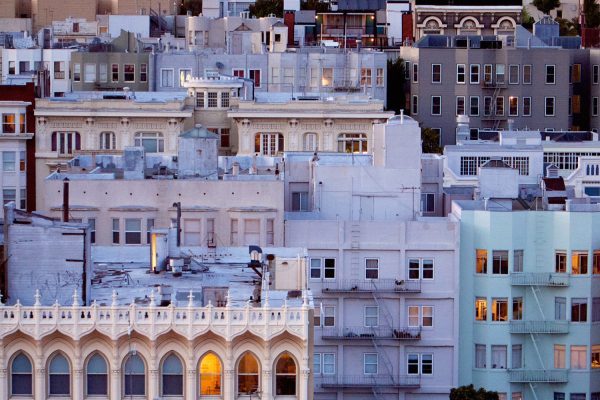
California may be the future of the Democratic Party, but the left doesn’t have everything figured out in the Golden State.
Michael Greenberg reports for The New York Review of Books that California likes to think of itself as a liberal bastion against the far-right policies of Donald Trump.
It is refusing to cooperate with the president’s anti-immigrant policies. It has enacted its own environmental and net-neutrality laws which, given the size and influence of California’s economy, could have a nationwide effect.
But California also has the highest poverty rate in America and a quarter of its homeless.
Housing crisis
The root of the problem is unaffordable housing. The median price for a home in California is $597,000, beyond the reach of three out of four residents. Workers in Silicon Valley often live one or two hours away.
Homeowners cite environmental laws to block high-density development that would actually reduce pollution (by cutting commutes) and help alleviate the housing crisis.
Property taxes have been frozen for decades, causing a dramatic fall in the quality of the public schools they fund.
The Financial Times has estimated that California needs to build 180,000 homes per year to keep up with population growth. It built less than half that number in the last ten years.
Progressive vision
Peter Leyden and Ruy Teixeira have argued that California’s Democrats are leading the way in developing a progressive vision for the twenty-first century:
The New California Democrats understand that a healthy society needs a strong government that’s well funded, and they don’t shy from raising public funds through progressive taxation. But the New California Democrats appreciate the market and the capabilities of entrepreneurial business. They are tech-savvy and understand the transformative power of new technologies and the vibrancy of an economy built around them. They understand that to solve our many twenty-first-century challenges, we need business to come up with solutions that scale and that grow the economy for all.
Which is all true, but at the same time, Greenberg writes, many of these socially and environmentally progressive Democrats have “a Machiavellian allegiance to developers and large landholders, who have been the major force in state politics since the Gold Rush.”
California Democrats don’t take a risk fighting carbon-emission and anti-immigrant policies that are widely unpopular in their state. They would by standing up to landed interests and the NIMBYism of their upper-middle-class supporters — but they must.
Greenberg concludes:
Numerous studies show that stable, affordable housing is the most important factor in people’s social and economic well-being. California cannot address the most essential needs of its residents if it must always defer to homeowners’ dislike of traffic or less-well-off neighbors. If elected officials have the will to enact reforms that would spread the benefits of the state’s prosperity, California would be more than a symbolic “state of resistance.” It would point the way to a future beyond the dystopian nightmare of haves and have-nots that is now the main threat to America’s democracy.
